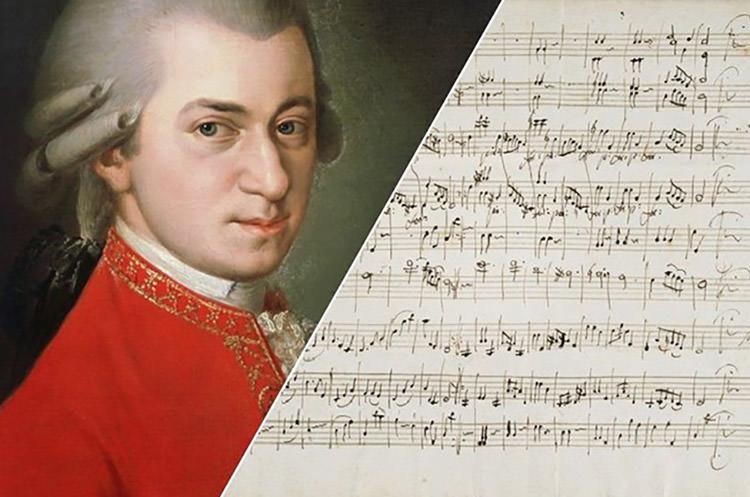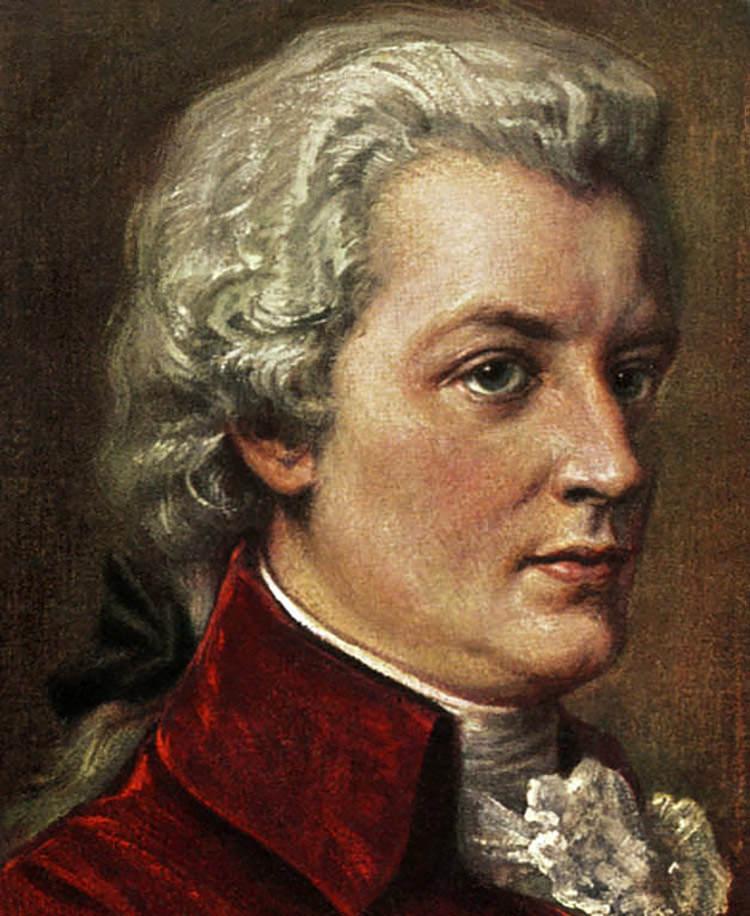The enduring influence of Mozart's music on society
Wolfgang Amadeus Mozart, an 18th-century musical genius, continues to captivate audiences and inspire musicians even centuries after his untimely death. His timeless compositions, marked by their beauty, complexity, and emotional depth, have had a profound and lasting impact on society. Mozart's music, with its universal appeal, has transcended time and cultural boundaries, shaping the world of classical music and leaving an indelible mark on various aspects of society. In this article, we delve into the significant influence of Mozart's music on society, exploring its effects on education, mental well-being, cognitive development, and popular culture.
Education and Intellectual Development:
Mozart's music has long been associated with enhancing cognitive abilities, particularly in the realm of education. The "Mozart effect," a term coined in the 1990s, refers to the theory that listening to Mozart's compositions, particularly his piano sonatas and symphonies, can temporarily boost spatial-temporal reasoning and improve cognitive performance. Numerous studies have explored this phenomenon, leading to the incorporation of Mozart's music in educational settings, such as classrooms and study environments. The complexity and structural balance of his compositions are believed to stimulate brain activity, enhancing concentration, memory retention, and problem-solving skills.
Emotional and Mental Well-being:
The emotional depth and intricacy of Mozart's music have a profound impact on listeners' well-being and emotional states. The richness of his compositions, ranging from joyful and exuberant to melancholic and introspective, provides a cathartic experience for individuals. Mozart's music has been utilized as a therapeutic tool in music therapy sessions, offering solace to those struggling with anxiety, depression, and various mental health issues. The soothing melodies and harmonies can alleviate stress, elevate mood, and promote relaxation, contributing to emotional well-being and mental balance.
Cultural Impact and Social Cohesion:
Mozart's music transcends cultural barriers and unites people from diverse backgrounds. His compositions have become part of the global cultural heritage, celebrated and performed in concert halls, opera houses, and music festivals worldwide. Mozart's ability to capture the essence of human emotions and experiences in his music resonates with audiences universally. His compositions promote dialogue, foster cultural exchange, and encourage social cohesion, creating a shared appreciation for the arts across different societies. Mozart's music acts as a unifying force, connecting individuals and communities through a common language of harmony and beauty.

Artistic and Musical Legacy:
Mozart's immense musical talent and prolific output have shaped the development of classical music and influenced subsequent generations of composers. His innovative approach to composition, characterized by intricate counterpoint, symphonic form, and lyrical melodies, pushed the boundaries of classical music during the late 18th century. Mozart's works served as a bridge between the Baroque and Classical eras, paving the way for the Romantic period. Composers such as Ludwig van Beethoven, Franz Schubert, and Pyotr Ilyich Tchaikovsky were deeply influenced by Mozart's compositions and techniques, integrating his musical ideas into their own works. His legacy as a musical innovator continues to inspire contemporary composers and performers, ensuring the enduring relevance of his music in the modern era.
Popular Culture and Media:
Mozart's music has permeated popular culture, appearing in numerous films, television shows, and commercials. His compositions, such as the iconic "Eine kleine Nachtmusik" and the tragic opera "Don Giovanni," have become instantly recognizable and synonymous with elegance and sophistication. Mozart's music adds depth and emotional resonance to cinematic narratives, enhancing storytelling and eliciting powerful emotional responses from viewers. Additionally, his life and music have been the subject of countless biopics and documentaries, further popularizing his work and introducing it to new audiences.
Musical Education and Talent Development:
Mozart's music serves as a cornerstone in the training of classical musicians. His compositions are often included in the repertoire of music students, providing them with technical challenges and opportunities for artistic expression. Studying and performing Mozart's works helps aspiring musicians refine their technique, interpretation skills, and musical sensitivity. The intricate nuances and demanding nature of his compositions require a high level of proficiency and musical understanding, making them valuable tools for talent development and musical education.
Evolution of Opera and Dramatic Music:
Mozart's contributions to opera, particularly through his masterpieces like "The Marriage of Figaro," "Don Giovanni," and "The Magic Flute," revolutionized the genre. He elevated the status of opera, expanding its scope beyond mere entertainment by infusing it with profound emotions, complex characters, and intricate storytelling. Mozart's operas explore the depths of human nature and tackle social and political themes, presenting a compelling fusion of music and drama. His innovations in opera composition set a new standard for dramatic music, inspiring future generations of composers to push the boundaries of the art form.
Influence on Instrumental Music:
In addition to his renowned operatic works, Mozart's instrumental compositions have also had a profound impact on the evolution of classical music. His symphonies, piano concertos, and chamber music exemplify the pinnacle of classical composition, characterized by their structural balance, melodic brilliance, and harmonic richness. Mozart's mastery of orchestration and his ability to craft intricate musical dialogues between instruments have influenced subsequent composers and shaped the development of orchestral and chamber music. His symphonies, in particular, have become enduring staples in the classical repertoire, performed by orchestras around the world.

Inspiration for Cross-Genre Collaboration:
Mozart's music has served as a source of inspiration for artists in various genres beyond classical music. Musicians from diverse backgrounds, including jazz, rock, and electronic music, have drawn upon Mozart's compositions to create innovative fusions and reinterpretations. His melodies and harmonic structures lend themselves to improvisation and experimentation, allowing artists to incorporate Mozart's themes into their own musical styles. This cross-genre collaboration not only introduces Mozart's music to new audiences but also demonstrates its versatility and enduring relevance in contemporary music.
Tourism and Cultural Heritage:
The influence of Mozart's music extends to the tourism industry, particularly in cities closely associated with the composer, such as Salzburg, Austria, and Vienna. These cities celebrate their Mozartian heritage, attracting visitors from around the world who come to immerse themselves in the world of Mozart. Museums, concerts, and guided tours offer insights into Mozart's life, his compositions, and his impact on music history. The cultural tourism generated by Mozart's legacy contributes to the local economy and fosters a deeper appreciation for classical music and its historical significance.
Social Critique and Satire:
Mozart's compositions often contain elements of social critique and satire, addressing the issues and follies of his time. Through his operas, he cleverly weaves political and social commentary into the narratives, offering subtle critiques of the aristocracy, societal norms, and power dynamics. Mozart's music becomes a medium through which societal issues are examined and reflected upon, transcending entertainment and provoking intellectual discourse. His ability to convey complex emotions and ideas through music further highlights his genius and the profound impact of his compositions on societal consciousness.
Conclusion:
Wolfgang Amadeus Mozart's music continues to exert a profound influence on society, transcending time and cultural boundaries. His compositions have shaped the world of classical music, inspired generations of musicians, and left an indelible mark on various facets of society. From its educational benefits to its therapeutic applications, Mozart's music has proven to have a positive impact on cognitive development and emotional well-being. His compositions act as a unifying force, promoting cultural exchange and social cohesion. Moreover, Mozart's artistic legacy has permeated popular culture, solidifying his position as one of the most influential composers in history. As we continue to appreciate and explore the wonders of Mozart's music, its timeless beauty and universal appeal will undoubtedly continue to enrich the lives of generations to come.
Our website respects the intellectual property rights of creators, as well as the music rights of authors and composers.
The musical works are provided solely for the private use of each visitor/user
and any further exploitation of them in any way is prohibited without prior permission from AUTODIA and EDEM Rights.
Radio Art is fully approved by the Greek Collective Rights Organizations | AUTODIA | EDEM Rights
Copyright © RABS - Radio Art Broadcasting services Ltd. All rights reserved.
The Art of Relaxing & Meditation Music
Privacy Policy & TOS








